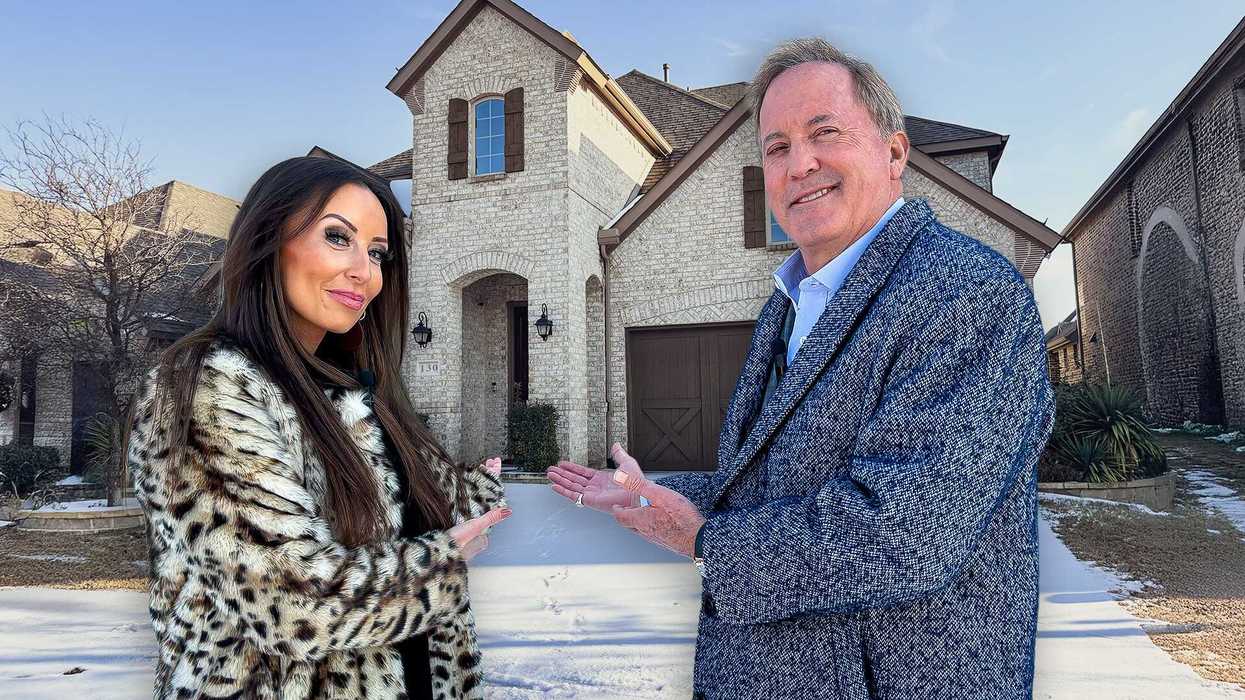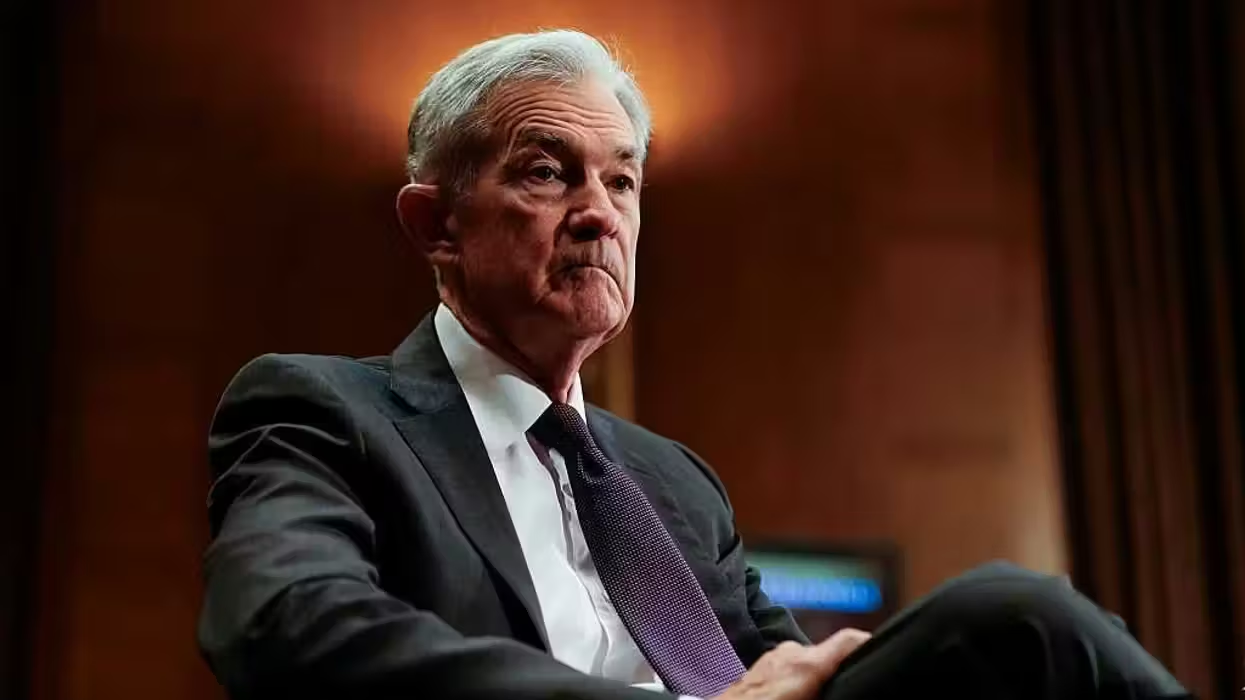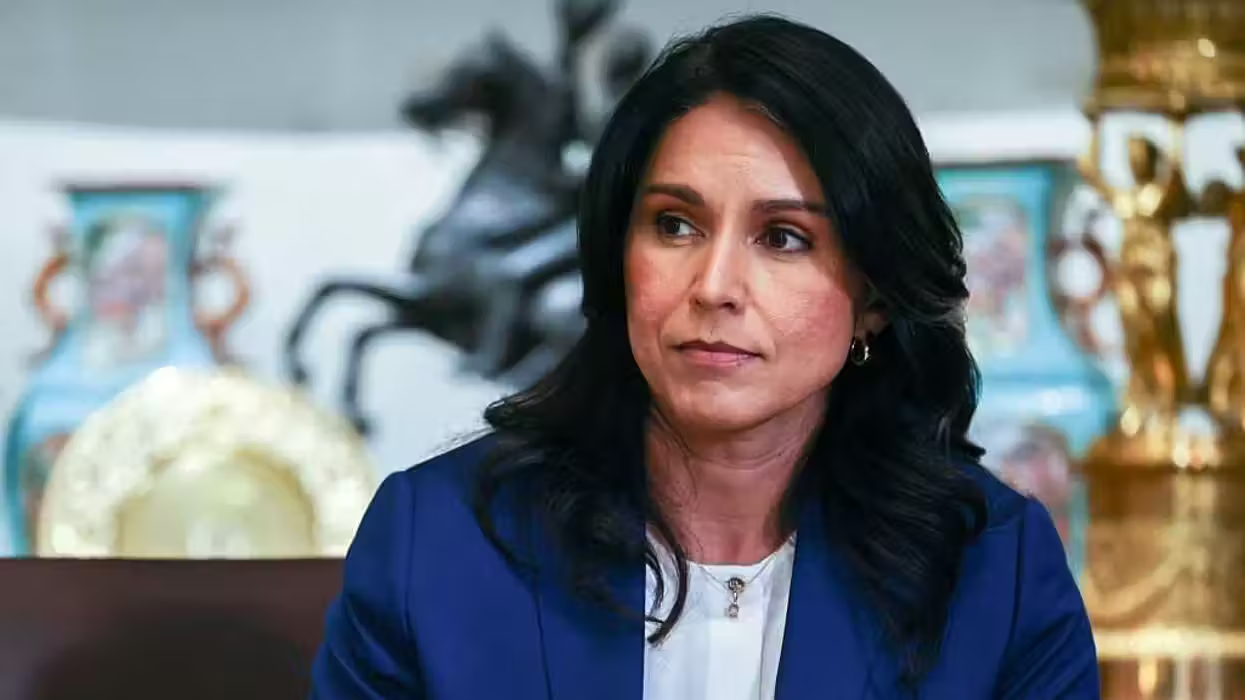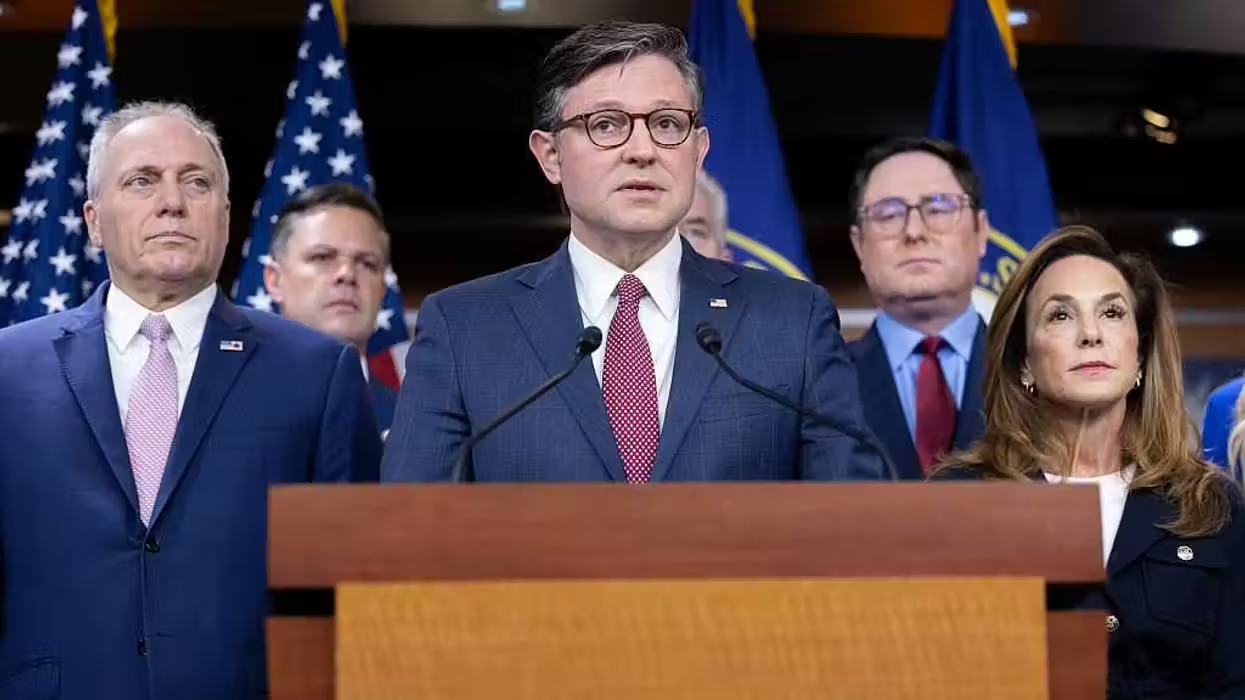
© 2026 Blaze Media LLC. All rights reserved.
"It's essentially QE3."
The Federal Reserve announced yesterday that it will use more than $400 billion to try to drive down long-term interest rates, make home and business loans cheaper and invigorate the economy.
Analysts said the moves would provide only a slight economic benefit.
The plan the Fed unveiled, dubbed "Operation Twist," resembles a program the Fed used in the early 1960s to "twist" long-term rates lower relative to short-term rates.
"This program should put downward pressure on longer-term interest rates and help make broader financial conditions more accommodative" the Fed said in its official statement according to a recent CNN Money article.
In its statement, the Fed noted that the economy is growing slowly; unemployment is high and housing remains in a prolonged slump.
"This is a measured response to weak economic conditions," said David Jones, head of DMJ Advisors and the author of four books on the Fed.
"The Fed is still trying but it can only do so much," he said in the AP report.
"I don't think it's going to help," said Michael Sansoterra, portfolio manager at Silvant Capital Management. "The issue is we need to spur jobs," he said. "And encouraging corporations to hire workers is out of the Fed's hands."
Under its plan, the Fed will extend the average maturity of its holdings from six to eight years. The Fed has directed the New York Fed to buy Treasurys with remaining maturities of six to 30 years, and to sell an equal amount of securities with maturities of three years or less.
According to the AP, the action the Fed announced Wednesday is modest compared with previous steps it has taken. The Fed will not expand its $2.9 trillion holdings; it is just "re-balancing them."
It will sell the $400 billion of its shorter-term Treasurys to buy longer-term Treasurys by June 2012. In addition, it will reinvest principal payments from its mortgage-backed securities, to help keep mortgage rates at lower levels.
“Operation Twist may not provoke the hawks on the FOMC [The Federal Open Market Committee], and it does not antagonize those members of Congress who are concerned about potential inflationary pressures from further expanding the size of the balance sheet,” said Dana Saporta, U.S. economist at Credit Suisse in New York, in a recent Bloomberg report.
“When you have an economy growing under 1 percent in the first half you probably take every 10th of a percent of GDP growth that you can” through a policy such as Operation Twist, said Roberto Perli, a managing director at International Strategy & Investment Group in Washington, in the same Bloomberg report.
“It’s better than nothing but it’s obviously not going to be a knockout blow or a game changer for the economy,” said Michael Feroli, chief U.S. economist for JPMorgan Chase & Co. in New York.
Fed policymakers announced the move after a two-day meeting. Three members out of 10 dissented from the decision. The three dissenters - Richard Fisher, Narayana Kocherlakota and Charles Plosser, all regional Fed bank presidents - have said the Fed's policies may be raising the risk of high inflation. They favor giving the economy more time to heal without further government intervention. Republicans leaders have echoed the exact same sentiments.
Since the unveiling of the new economic plan, stocks dropped immediately and then continued to fall. When the Dow Jones industrial average closed yesterday, it ended down about 283 points.
Radio personality and conservative commentator Rush Limbaugh had his own practical analysis:
The Federal Reserve has done it. It's essentially QE3. They're not printing money, but they are going to increase their share of longer-term Treasuries by $400 billion by June of next year. The objective here is to make credit cheaper. They're trying to lower interest rates even more, including on mortgages. This is not going to work. This is another attempt at stimulus, folks, and it's related to Obama's reelection, there's no question that that's what this is all about.They're basically going to buy securities again. They're going to jack up and goose the stock market, but they are going to do so with longer term Treasuries, in some cases with payouts over 50 years instead of six and ten.
I'm going to call it QE3. I don't know if anybody else will go that far yet but we'll find out soon enough but it's a boost of the stock market, a boost of Wall Street, campaign donations to Obama no doubt, and an attempt to lower credit even further because this bunch believes if they could just get people to start borrowing money, the economy will revive. They totally miss that that's not the point right now.
The Republicans begged Bernanke not to do this at the Federal Reserve. They're going to do it. They're not printing new money to put into the market. They are shifting money into riskier investments, basically, and trying to bring down interest rates even further.
Whether or not dubbing it "QE3" is accurate, Limbaugh is correct in regards to the methodology and the desired results of Operation Twist (of course, it doesn't hurt that he has heretofore been correct in his earlier predictions involving the administration's actions).
And as for alternatives to this recent move by the Fed, there are some who think there is a better way. According to the Associated Press:
David Kelly, chief market strategist at J.P. Morgan Funds, said the Fed should threaten to raise rates instead of promising to keep short-term rates near zero until the middle of 2013. Why? It would be an incentive to borrow and spend, he says. People looking to buy a house may rush to lock in current record low mortgage rates before they start rising. "Right now they have zero incentive," Kelly said.Higher interest rates also drive down bond prices. So the threat of an interest rate hike would likely "kick people out of Treasurys," he said, and coerce them into the stocks or other investments.
"It's like a patient that's been in the sick bay too long," Kelly said. "The Fed really needs to tell the economy to get out of bed and walk around. Unfortunately, they keep giving it more and more doses of morphine."
(The Associated Press contributed to this story).
Want to leave a tip?
We answer to you. Help keep our content free of advertisers and big tech censorship by leaving a tip today.
Want to join the conversation?
Already a subscriber?
more stories
Sign up for the Blaze newsletter
By signing up, you agree to our Privacy Policy and Terms of Use, and agree to receive content that may sometimes include advertisements. You may opt out at any time.
Related Content
© 2026 Blaze Media LLC. All rights reserved.
Get the stories that matter most delivered directly to your inbox.
By signing up, you agree to our Privacy Policy and Terms of Use, and agree to receive content that may sometimes include advertisements. You may opt out at any time.






